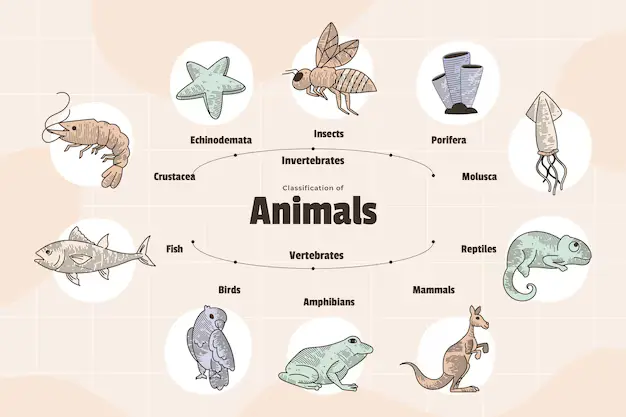
Animal Biology
Overview
Animal biology is the study of the biology of animals, including their anatomy, physiology, behaviour, evolution, and ecology. It provides insights into their classification, internal structures, and how these organisms interact with their environment.
You will learn how animals adapt to various environments and respond to environmental changes. This course examines how animals communicate, forage, reproduce, and form social structures.
Objectives
- Explore the vast range of animal species
- Study the internal and external structures of animals
- Understand the history of major animal groups
- Study animal behaviour
- Explore ecological relationships
- Develop practical skills
- Encourage animal welfare
Prerequisites
- Basic understanding of biology, chemistry, and mathematics
- A high school diploma
- English language proficiency
Curriculum Outline
- Animal Physiology
- Animal Husbandry
- Animal Behaviour
- Nutrition Principles
- Animal Reproduction and Genetics
- Animal Health and Disease
- Disease Investigation and Epidemiology
- Applied Animal Breeding
- Physiology of Behaviour
- Research Skills
- Animal Nutritional Health
- Animal Cognition and Training
- Applied Animal Nutrition
- Anthrozoology
- Adaptive Physiology
- Animal Genetics
- Dissertation
Teaching Method
- Guest lectures
- Physical visit
- Classes
- Lectures
- Laboratory Classes
Modules
- Introduction to Animal Biology
- Animal Physiology
- Animal Development and Reproduction
- Evolution and Ecology of Animals
- Comparative Anatomy and Physiology
- Animal Classification and Taxonomy
- Immunology in Animals
- Biotechnology in Animal Biology
- Conservation Biology and Biodiversity
- Animal Behavior and Neurobiology
- Advanced Topics in Animal Biology
Assessment Methods
- Examinations
- Practical Examinations
- Written Essays
Course Duration
It typically takes 3 to 4 years when you study full-time. Some accelerated programmes can take 2 to 3 years. The part-time or online programmes can span 2 to 4 years.
Facilities
- Laboratories
- Animal Habitats for Observation
- Ecology Field Stations
- Bioinformatics Software
- Preserved Animal Specimens
- Living Organisms for Observation
- Online Resources
- Animal Behavior Observators
- Wildlife Research Units
- Animal Care Units
- Lecture Halls
- Seminar Rooms
- Collaborations with Zoos, Aquariums, and Museums
Career Pathways
- Wildlife Biologist
- Zoologist
- Veterinarian
- Environmental Consultant
- Marine Biologist
- Animal Behaviorist
- Ecologist
- Animal Welfare Officer
- Animal Nutritionist
- Ethologist
Fees and Fundings
The fee range for an Animal Biology degree in the UK for international students can lie between £15,000 and £35,000 per annum. The amount can vary by location and institution.
Entry Requirements
- A high school diploma or equivalent
- English language proficiency
- Personal statement
- References/Recommendations (Tentative)
Field Work and Internships
- Ecology and Wildlife Research
- Marine Biology Fieldwork
- Conservation and Habitat Restoration
- Veterinary Fieldwork
- Research Internships
- Conservation and Environmental Organisations
- Veterinary and Animal Care Internships
- Zoo and Aquarium Internships
- Wildlife Rehabilitation Internships
Certifications
- Certification in Wildlife Management
- Certified Wildlife Biologist (CWB)
- Endangered Species Recovery Certification
- Veterinary Technician Certification
- Animal Care and Welfare Certification
- Certified Marine Biologist (CMB)
- SCUBA Diving Certification (PADI, NAUI)
- Environmental Impact Assessment (EIA)
Intakes
In the UK, the primary intake happens in September/October, but students can always aim for the secondary intake, which takes place in January/February.
Student Testimony
"I knew that Nottingham Trent University had a specific campus that specified in animal, rural and environmental degrees before I had applied to go to university so thought that this would be the perfect place for me to study." [Molly Malyon from Nottingham Trent University]
Frequently asked questions
Zoology is the scientific study of animals.
